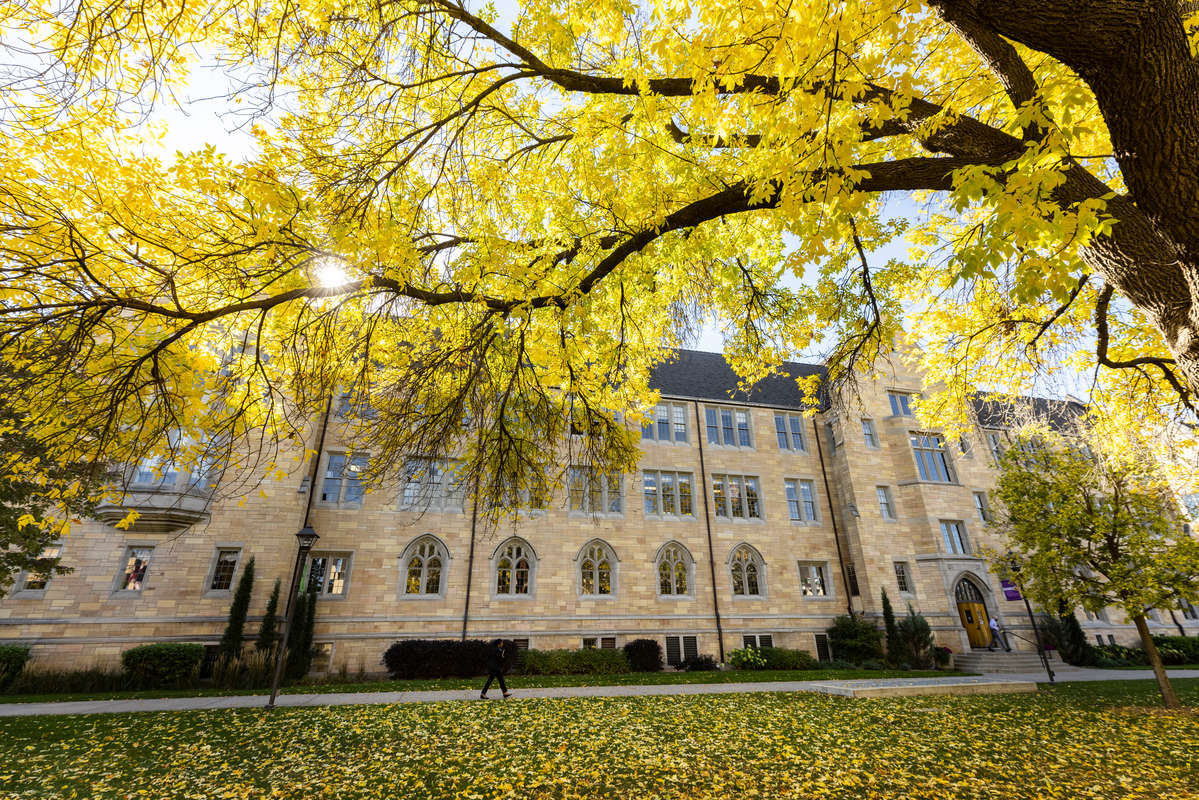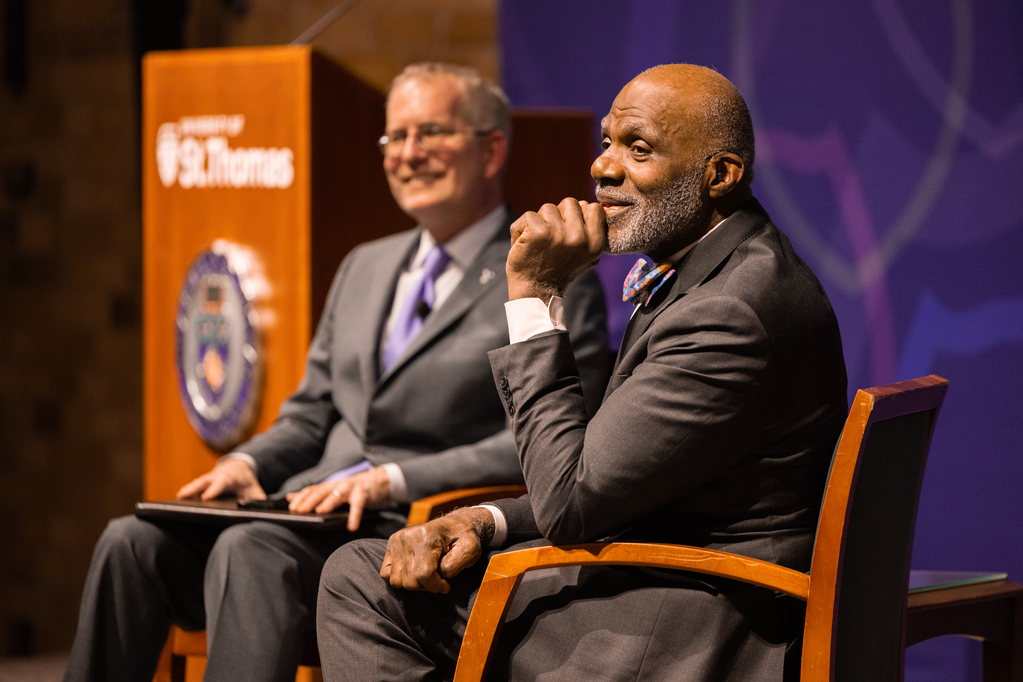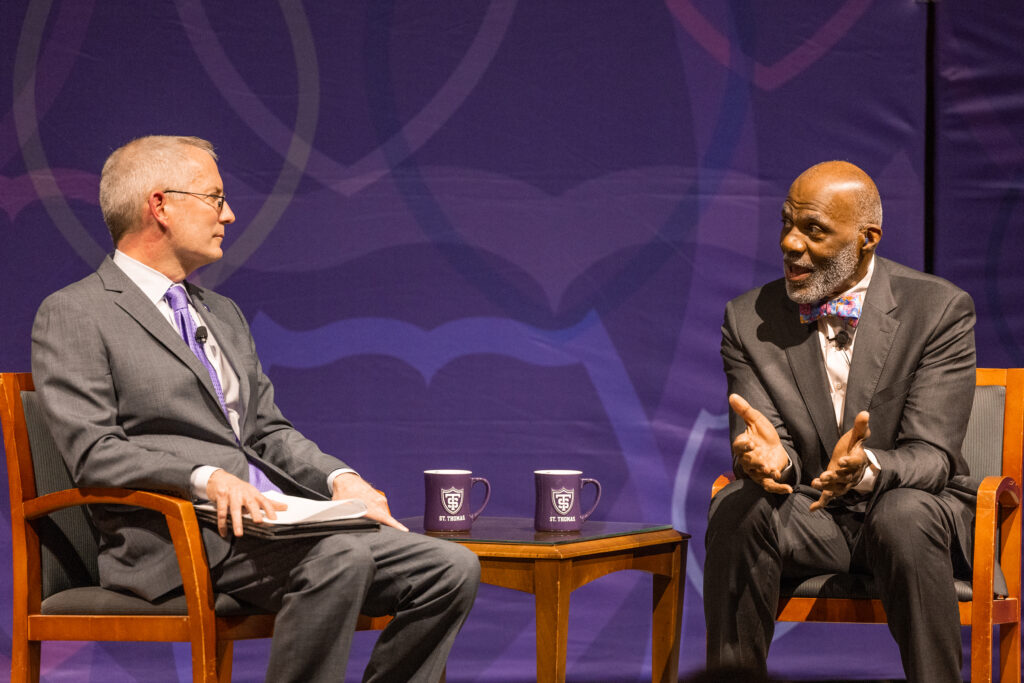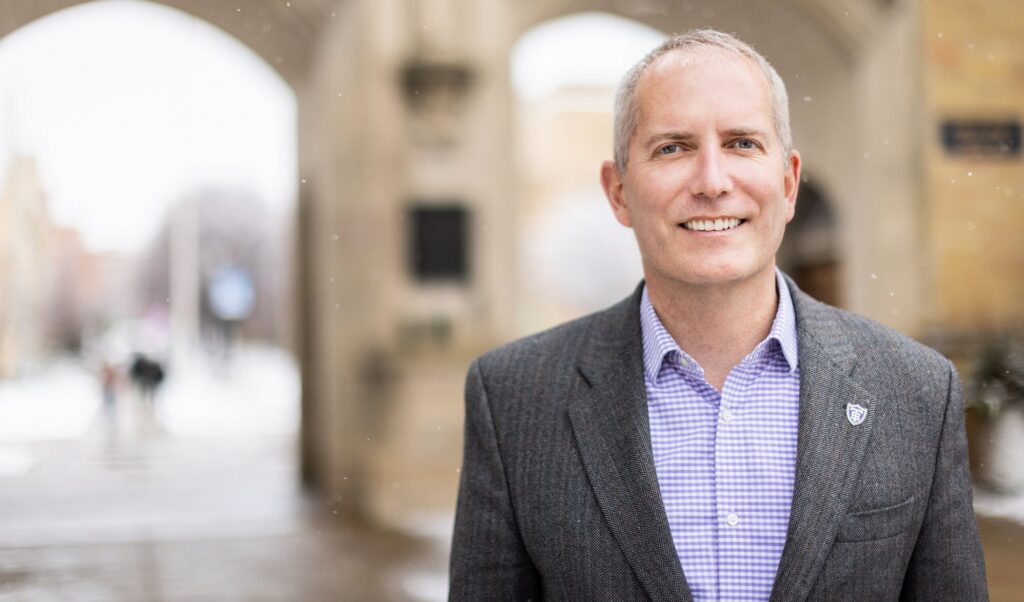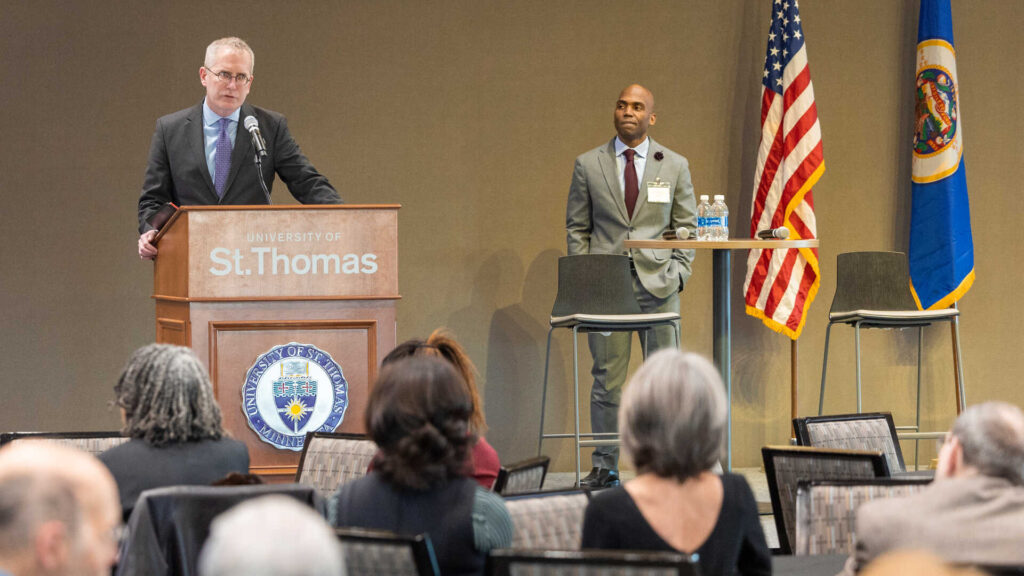Interim President Rob Vischer sent the following note to faculty and staff on Sunday, Sept. 25.
Tonight at sundown, our Jewish students and colleagues will begin observing Rosh Hashanah, the first day of the Jewish new year. This begins the 10 days of reflection and repentance that end with Yom Kippur. How we have treated – and will endeavor to treat – others is at the heart of this period of contemplation. Hillel the Elder, one of the most influential rabbis in Jewish history, explained to his students: “That which is hateful unto you, do not do unto your neighbor. This is the whole Torah; all the rest is commentary.”
Centuries later, the Jewish philosopher Martin Buber framed the moral life as a tension between “I-Thou” and “I-It.” He explained that when we view others as an “It,” we cast a person as a thing. It is only when we understand another as a “Thou” that we enter into a fully human relationship. This encounter is not an aspect of life; it is life, for “AIl real living is meeting.” Significantly, we are always poised to change our view of our neighbor from an “It” to a “Thou,” and vice versa. Buber offered a comparison from nature: “The ‘It’ is the eternal chrysalis, the ‘Thou’ the eternal butterfly – except that situations do not always follow one another in clear succession.” Love itself, Buber wrote, “is responsibility of an I for a Thou.”
(The influence of Buber’s explanation has been immense in the century since he wrote it. Martin Luther King Jr., for example, placed it at the center of his Letter From a Birmingham Jail. Protestant thinkers such as Reinhold Niebuhr and Paul Tillich embraced it. Buber also influenced Dorothy Day and the Catholic Worker movement.)
I’m sure that the coming year will present opportunities to put our commitment to “Thou” to the test. As we prepare for a new week, I encourage you to reflect: How might an “I-Thou” lens support the strength of our university community during whatever challenges lie ahead? Whether we’re navigating thorny student issues, budget challenges, our red-blue political divide, questions about what our mission should mean in today’s world, or the day-to-day frictions that arise in any workplace, what does it look like if I treat the person before me as a “Thou,” not an “It?”
To our friends observing Rosh Hashanah, on behalf of our entire community, “leshana tova” – we wish you a good year.
